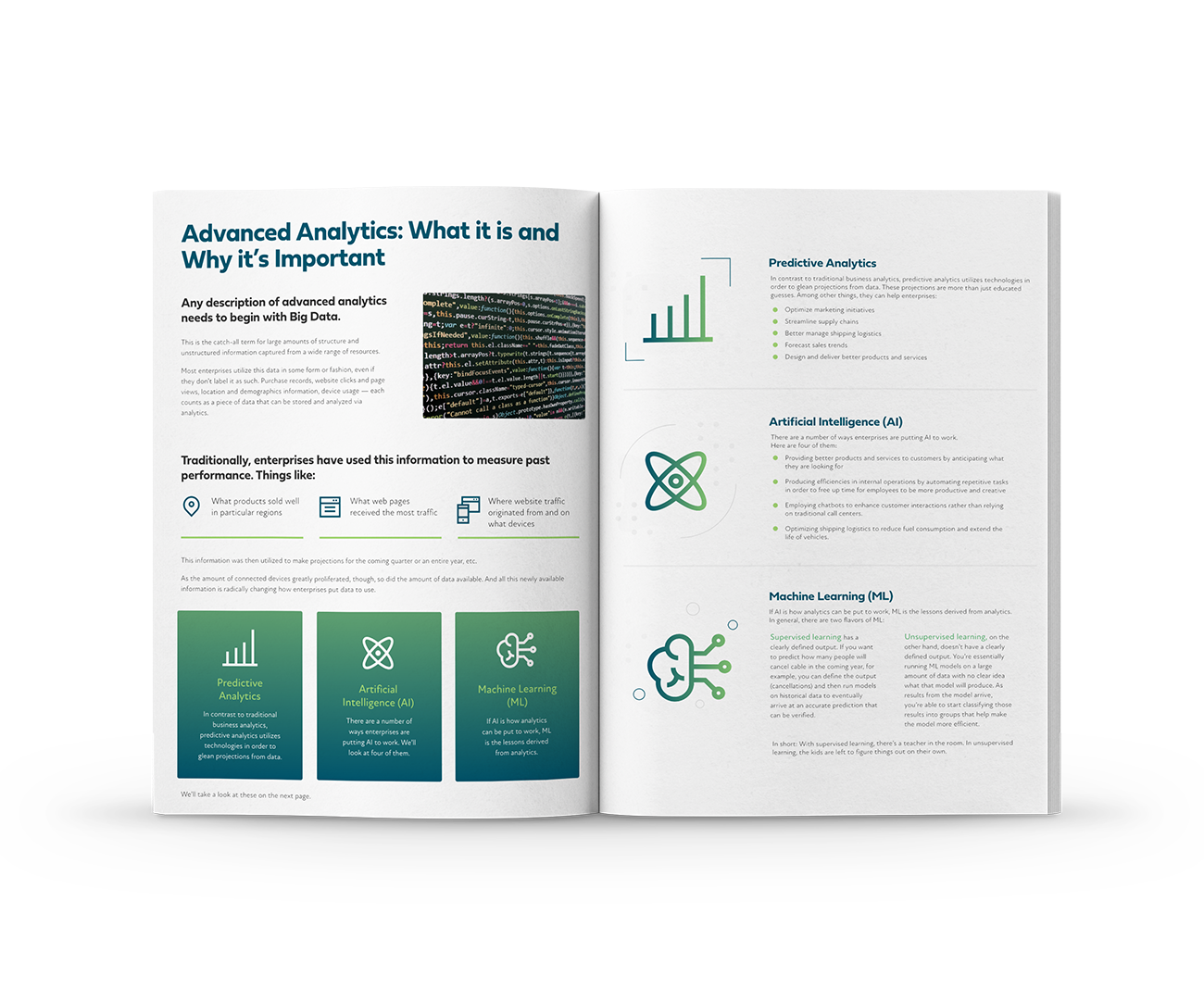Brad Steinberger (00:11):
Hello, and thank you for joining us for this discussion on How Organizations Can Find Their Most Meaningful Data. I'm Brad Steinberger with A Brave New and joining me today is Kyle Clubb, practice director of advanced analytics at Redapt. Kyle, when you talk about meaningful data, what type of data are you talking about?
Kyle Clubb (00:30):
Of course, we have lots of data. We've heard over the years about the large amount of data that's available globally and to organizations. The challenge is to find the relevant data in a timely manner. That helps any analytics organization with two real achievements, better decision making and problem solving. Don't start with the data— instead start with the business questions and the problems you're trying to solve, and get those into a workable state. Then, dive into the data and only go after what's going to solve those problems, or help the decision making.
Brad Steinberger (01:18):
Given the sheer amount of data organizations have access to these days, how can they keep up with it all and do that identification of meaningful data?
Kyle Clubb (01:30):
Technology has allowed us to store tons of data, so the costs per terabyte, those units of measure, are relatively cheap. We do have companies that will store everything, either for compliance reasons, or because they feel it may be valuable in the future. The technology is there and it's fairly inexpensive. As we do that, we need to catalog it, classify it, and tag it appropriately. Then, when certain business questions and problems arise, data professionals can access what they need quickly. So there are different technology packages out there. We use Azure, AWS, and GCP. They have flavors of different ways to classify and tag data, which would be part of a larger governance initiative and is extremely important.
Brad Steinberger (02:19):
What are the potential problems not identifying and sifting out non-meaningful data can cause an organization?
Kyle Clubb (02:28):
For data to be meaningful, it has to be relevant for that particular need. We could have data that is not seen as useful sitting around for years, and then there is a business question that requires we pull it or transform in a meaningful way. Time tends to change how we view data and how valuable it may be, depending on the context. But, we want to make sure that the data is available to us, so we can find it quickly for compliance reasons, or auditing. There are a whole lot of umbrellas of auditing. And authority, either through outside agencies that we need to look at, and every company's different. A lot of companies will ingest the data and they don't do the greatest job at tagging it appropriately, classifying it as confidential, or sensitive information. We see this in healthcare and financial industries. It's pretty important, but it's still a challenge they work with.
Brad Steinberger (03:35):
How can organizations best apply governance to automate, find, and store meaningful data?
Kyle Clubb (03:43):
You're talking about governance. If it's tagging and identifying sensitive information at different sensitivity levels, you have different roles within the organization. There is the technology that can tag them pretty well. Manual tagging is rather expensive. Organizations should have roles and responsibilities to do that—many organizations have the capability to do it, there's just no actual role or anybody who is responsible for it. Governance tends to go on in organizations—it's just done informally. It's exposing what's done informally, formalizing it, looking at the gaps, and then really formalizing the roles and accountabilities on who should be responsible, what's missing, and filling the gaps.
Brad Steinberger (04:32):
Should organizations still hang onto data that isn't meaningful, in case they have a use for it down the road?
Kyle Clubb (04:41):
It depends on the organization. It could be meaningful later. Some organizations will retain data—some look back at data they eventually purged and wish they hadn’t. Most organizations today will tend to err on the side of saving old data. It may not be important until years down the road, when we need to look at it for new business questions that may arise. What is meaningless one year may not be meaningless the next. It's pretty fluid. The ability to quickly adapt, identify what you need, and create an analytics project that quickly transforms and gets to the root of the problem, or helps the decision making, is super important.
Brad Steinberger (05:27):
How can Redapt help organizations identify meaningful data and put in place solutions to surface it?
Kyle Clubb (05:36):
We have the Redapt data maturity model, which helps us at a strategic level really understand the organization and where they're at from a lot of different process areas when it comes to the data ecosystem. Instead of looking at things from a very high level, we like to immediately get at the current objectives of the organization. Whether that's increasing sales, understanding why sales are moving or changing, or any problems coming about through operations, or supply chain issues. It really depends on what the organization's objectives are. We'll focus on that, identifying the pieces of data that are going to get them to better decision-making points, and also solve their problems. We need to do that as quickly as possible in an agile fashion.
Brad Steinberger (06:27):
Thanks Kyle for joining us. If anyone has more questions about meaningful data, or data in general, reach out to the experts like Kyle at Redapt.com.













